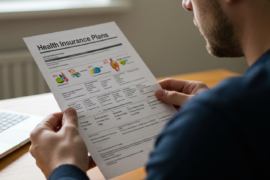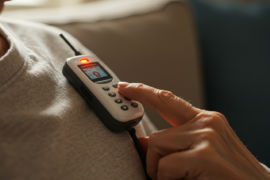This article may contain references to products or services from one or more of our advertisers or partners. We may receive compensation when you click on links to those products or services. Nonetheless, our opinions are our own.

Updated by Albert Fang
When someone we love is going through anxiety or depression, we naturally want to support and help them in any way we can. Mental health issues like anxiety and depression can have a significant impact on both individuals and their relationships. It can be confusing and overwhelming to navigate this terrain, but with the right knowledge, you can provide valuable support to your partner.
Understanding the struggles and complexities of anxiety is essential for offering effective assistance. Anxiety is characterized by excessive worry, fear, and a constant sense of unease, while depression encompasses persistent sadness, hopelessness, and a loss of interest in activities. Recognizing the signs that your partner may be experiencing anxiety or depression is the first step in understanding their needs.
In this article, we will explore research-based strategies and insights to help you understand and assist your partner effectively. By implementing these strategies, you can play a significant role in helping your partner navigate their anxiety and foster a supportive environment.
(50%) of adults ages 18-24 reported anxiety and depression symptoms in 2023, compared to about a third of adults overall.
Recognizing the Signs
It’s crucial to be aware of the signs that your partner may be experiencing anxiety or depression. Did you know nearly 50% of American adults (aged 18-24) reported symptoms of anxiety depression in 2023. These signs can vary from person to person, but some common indicators include:
- Persistent feelings of sadness or emptiness.
- Changes in appetite or weight.
- Sleep disturbances, such as insomnia or excessive sleep.
- Loss of interest in activities once enjoyed.
- Irritability, restlessness, or difficulty concentrating.
- Fatigue or loss of energy.
- Physical symptoms like headaches or stomach aches without an underlying medical cause.
- Increased use of substances like alcohol or drugs.
- Social withdrawal or isolation.
Different Ways You Can Support Your Partner
Educate Yourself on Anxiety
Taking the time to educate yourself about anxiety is essential in providing effective support to your partner. Learn about the different types of anxiety disorders, their symptoms, and common triggers. Understand the impact anxiety can have on a person’s daily life and relationships.
By familiarizing yourself with anxiety, you will gain a better understanding of what your partner may be experiencing. This knowledge allows you to empathize with their struggles, offer appropriate support, and avoid misconceptions or stigmatization.
Encourage Open Communication
When supporting a partner dealing with anxiety or depression, effective communication is crucial. It involves active listening, showing genuine interest, and validating their feelings without judgment. Use “I” statements to express yourself and avoid defensiveness.
Reassure your partner of your support and be patient, allowing them space to express their emotions. Collaborate on problem-solving and be empathetic, seeking to understand their perspective. Respect their boundaries and encourage professional help if needed.
Learn Their Triggers
Understanding your partner’s anxiety triggers is crucial in providing effective support. Triggers can be specific situations, environments, or thoughts that worsen their anxiety symptoms. By observing and learning about these triggers, you can help your partner navigate their anxiety more effectively.
With this knowledge, you can work together to develop coping mechanisms or establish boundaries around potential triggers. By being aware and proactive, you can create a supportive environment that minimizes exposure to triggers and maximizes their sense of comfort and security.
Create a Calming Environment for Relaxation
Make your home a peaceful and calming space. Create a clutter-free and organized environment that promotes relaxation. Introduce soothing elements like soft lighting, calming scents, or gentle music to create a tranquil atmosphere. You can amplify the soothing effects by taking CBD and help them get into a relaxation mode. CBD, or cannabidiol, is a cannabis compound which is widely popular for its anxiety-reducing effects.
CBD is available in many forms and you can take whatever works best for your partner. You can easily get quality products from maryland dispensaries as they have a variety of collections and offer delivery services, as well. However, it’s advisable to consult your primary doctor before incorporating CBD into your partner’s anxiety management routine to ensure it aligns with their specific needs and circumstances.
Offer Practical Support
Practical support plays a vital role in helping your partner manage their anxiety. It involves assisting them in developing coping mechanisms and strategies to navigate anxious moments. Encourage the practice of relaxation techniques such as deep breathing exercises or mindfulness meditation.
Offer to accompany them to therapy sessions or support groups, providing a sense of companionship and encouragement. Assist in researching and implementing self-help resources or apps that can aid in anxiety management. By offering practical support, you demonstrate your commitment to their well-being and actively contribute to their journey of finding effective ways to cope with anxiety.
Encourage Self-Care
Encouraging self-care is essential to help your better half go through anxious days. Self-care activities can significantly contribute to their overall well-being and help manage anxiety symptoms. Promote regular exercise, as physical activity has been proven to reduce stress and boost mood.
Encourage a healthy diet and sufficient sleep, as these factors impact mental health. Support your partner in finding activities they enjoy and that promote relaxation, such as reading, practicing hobbies, or spending time in nature. By prioritizing self-care, your partner can cultivate a sense of control, improve their emotional resilience, and enhance their ability to cope with anxiety.
Seek Professional Help
In some cases, supporting a partner with anxiety may require the assistance of a mental health professional. Encourage them to seek therapy or counseling from a qualified professional who specializes in anxiety disorders. Professional help provides specialized guidance and support tailored to their specific needs. A therapist can help your partner explore the underlying causes of their anxiety, develop effective coping strategies, and provide a safe space for them to express their emotions. An anxiety therapist can help your partner explore the underlying causes of their anxiety, develop effective coping strategies, and provide a safe space for them to express their emotions.
By advocating for professional help, you demonstrate your commitment to their well-being and provide them with additional resources to manage their anxiety more effectively. Remember, seeking professional help is a sign of strength and a proactive step towards healing.
Final Thoughts
Supporting a partner dealing with anxiety or depression requires empathy, understanding, and active engagement. By implementing the strategies discussed in this article, you can play a significant role in helping your partner on their journey to better mental well-being.
Remember, it’s important to educate yourself on these conditions, be patient with their struggles, and create a safe and nurturing environment for open communication. Together, you can navigate the challenges, strengthen your bond, and provide the support your partner needs to overcome anxiety or depression.

Reviewed and edited by Albert Fang.
See a typo or want to suggest an edit/revision to the content? Use the comment form below for feedback.
At FangWallet, we value editorial integrity and open collaboration in curating quality content for readers to enjoy. Much appreciated for the assist.
Did you like our article and find it insightful? We encourage sharing the article link with family and friends to benefit as well - better yet, sharing on social media. Thank you for the support! 🍉
Article Title: Is Your Partner Anxious or Depressed? Here’s How You Can Help
https://fangwallet.com/2023/05/24/is-your-partner-anxious-or-depressed-heres-how-you-can-help/The FangWallet Promise
FangWallet is an editorially independent resource - founded on breaking down challenging financial concepts for anyone to understand since 2014. While we adhere to editorial integrity, note that this post may contain references to products from our partners.
The FangWallet promise is always to have your best interest in mind and be transparent and honest about the financial picture.
Become an Insider

Subscribe to get a free daily budget planner printable to help get your money on track!
Make passive money the right way. No spam.
Editorial Disclaimer: The editorial content on this page is not provided by any of the companies mentioned. The opinions expressed here are the author's alone.
The content of this website is for informational purposes only and does not represent investment advice, or an offer or solicitation to buy or sell any security, investment, or product. Investors are encouraged to do their own due diligence, and, if necessary, consult professional advising before making any investment decisions. Investing involves a high degree of risk, and financial losses may occur including the potential loss of principal.
Source Citation References:
+ Inspo












































